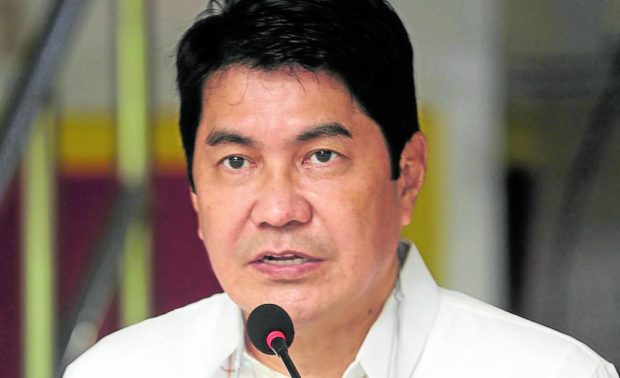2 DSWD execs sacked by Tulfo get reinstated
The two regional officials of the Department of Social Welfare and Development (DSWD) who were relieved of their posts last week supposedly for asking too “many” documents from aid-seeking storm victims in Cavite province have been reinstated and cleared of any infraction.
READ: 2 DSWD execs sacked amid Paeng aid rollout
Social Welfare Secretary Erwin Tulfo, who earlier announced their removal in the media to address a town mayor’s complaint, ordered them back after an investigation showed that they were just following protocol.
In a statement on Tuesday, the DSWD said Barry Chua and Mylah Gatchalian returned to their posts on Friday as regional director and assistant director, respectively, of the DSWD-Calabarzon Field Office upon Tulfo’s orders.
Tulfo had also informed Mayor Dino Chua (no relations to Barry Chua) of Noveleta, Cavite, about the department’s “fair and impartial inquiry.” The probe “absolved” the two DSWD officials since they were just following the DSWD’s “existing guidelines,” the agency quoted the secretary as saying.
Article continues after this advertisementIt was Mayor Chua’s complaint that prompted Tulfo to sack the two officials, citing the cases of storm evacuees in his town in the aftermath of Severe Tropical Storm “Paeng” (international name: Nalgae).
Article continues after this advertisementThe local government official said the regional DSWD office asked for too many documents from the calamity-stricken residents—such as a certificate of indigence and identification papers—before they could be given relief assistance.
Policy teview
Marlouie Sulima, head of the DSWD’s Social Marketing Service, said Tulfo “immediately” did a review of the agency’s policy on aid distribution because of the incident.
Tulfo has ordered the reduction of the requirements, doing away with the certificate of indigence, “for the faster processing of… assistance to anyone seeking help from the agency,” Sulima told reporters in a series of text messages.
“Now, residents who were listed by their respective LGUs (local government units) as victims of a calamity will only need to present one ID so they can get their assistance,” he added. In case there is no ID card or any other proof of identification, a beneficiary can ask for a barangay certification proving that he or she is on the list of calamity victims.
As a last resort, the DSWD may directly ask concerned barangay officials to confirm the identity of the aid seeker.
Under a DSWD program called Assistance to Individuals in Crisis Situations (AICS), one beneficiary may get between P3,000 and P10,000 in cash aid, depending on the social workers’ assessment of the person’s situation.
Auditing rules
Citing the results of the investigation, Tulfo said the two regional officials only asked for an ID from each typhoon-affected resident—not multiple documents, as reported by the mayor.
Tulfo also pointed out that requiring an ID was also in compliance with state auditing rules.
“Every centavo we give out to those in need must be accounted for and backed by a piece of document to show that our funds really go to the poor and the needy of this country, and to protect our personnel from graft and corruption cases,” Tulfo said as quoted in the DSWD statement.
On the day he announced the relief of Chua and Gatchalian, however, Tulfo said stringent requirements that the mayor complained about were in “very contrast” to President Marcos’ directive to make the release of calamity aid as smoothly as possible. Tulfo also apologized to the Noveleta mayor and vowed not to let the incident happen again.
On Tuesday, the DSWD said the secretary had pledged to “protect and defend” DSWD personnel “as long as they are committed to fulfilling their duty anchored on the department’s mission to alleviate the suffering of the poor, the needy, the elderly, the vulnerable and the marginalized members of the society.” INQ
